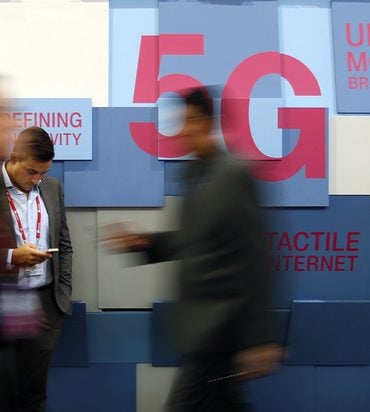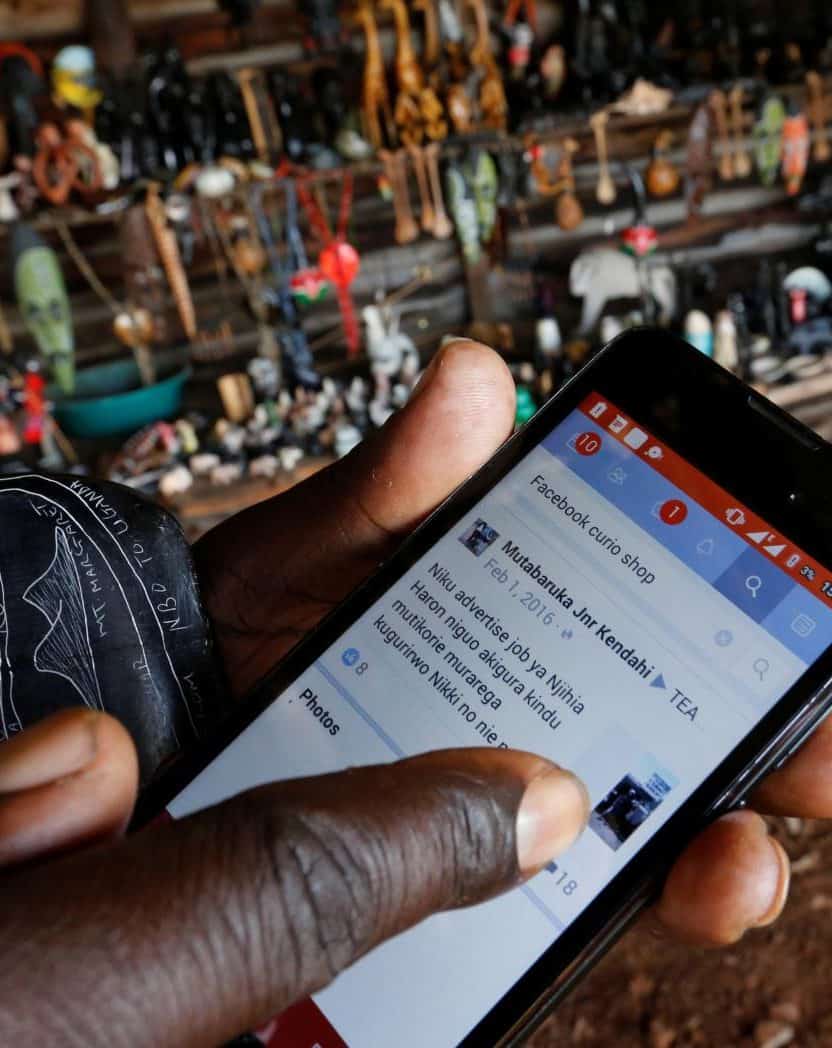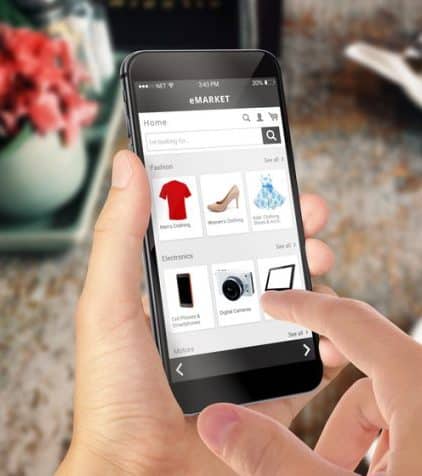Find out the week’s top mobile stories from around the world.
This week.. EU warns Facebook it faces sanctions over ‘misleading’ T&Cs, Ghostery revamps its privacy-focused mobile browsers, blockchain; key to mobile phone privacy? and much more.

EU warns Facebook it faces sanctions over ‘misleading’ T&Cs
Guardian
Brussels has warned Facebook it will face sanctions unless it changes what the European commission calls its “misleading” terms and conditions.
The EU commissioner in charge of consumer protection, Věra Jourová, said she had run out of patience with the social network after nearly two years of discussions aimed at giving Facebook’s European users more information about how their data is used.
“I will not hide the fact that I am becoming rather impatient because we have been in dialogue with Facebook almost two years,” Jourová told reporters. “Progress is not enough for me, I want to see results.”
Facebook has been given until the end of the year to change its terms of service. “Facebook will face sanctions from national authorities,” she said. “They will look into sanctions after the new year in case they do not see sufficient progress.”
Read more…
Blockchain A Key To Mobile Phone Privacy Issues, Says Security Executive
Block Tribune
Apple recently unveiled the rollout of iOS security updates for its new and existing products, including improved two-factor authentication, a password manager, and an intelligent anti-tracking feature that will make it difficult for ad companies to track Internet browsing across multiple sites.
With payments, cryptocurrency exchanges, and regular banking increasingly moving to mobile solutions, the news seems good on its face. But most of the updates still rely on centralized technologies to store proprietary user information.
Rob Viglione, CEO of Horizen, a technology platform that provides users with privacy, said blockchain may be a key to realizing some added privacy to mobile.
Read more…
Ghostery revamps its privacy-focused mobile browsers
Tech Crunch
Ghostery is launching new versions of its browsers for iOS and Android. In fact, Director of Product Jeremy Tillman said this is the first big update to Ghostery’s mobile browsers in several years.
It’s not that mobile wasn’t a priority for the team before this, but Tillman said, “In our previous company, we didn’t have a ton of resources — we always had to choose which thing to work on.” Apparently that changed last year with Ghostery’s acquisition by German browser company Cliqz.
The first big launch after the acquisition was Ghostery 8, the latest version of the team’s privacy-focused extension for desktop browsers. Next up: Bringing those features over to mobile.
Read more…
EU needs clear 5G regulation to guarantee mobile success
Computer Weekly
The European Union (EU) needs to take firm regulatory action on future 5G mobile networks if its members are to capitalise on the potential of the incoming new standard, according to the GSMA, the mobile industry trade association.
The GSMA released the latest regional edition of its Mobile economy report series at its Mobile 360 – Europeconference, which is currently underway in Brussels.
The report forecast that Europe’s mobile ecosystem would be worth a total of €720bn (£641bn) to the regional economy, or 4% of regional GDP by 2022, up from €550bn or 3.3% today.
The mobile industry currently supports 2.5 million jobs around the bloc, and made a public funding contribution of €100bn last year, both of which would also rise.
Read more…
Google teams up with T-Mobile on more-accurate 911 location data
CNET
Emergency operators in the US will soon be able to get more-accurate information about the location of Android phones used to dial 911.
Google said Wednesday that it’s partnered with T-Mobile and emergency technology providers RapidSOS and West to send emergency call centers information from its Emergency Location Service (ELS), an enhanced location service that runs on 99 percent of active Android devices.
About 240 million emergency calls are placed in the US each year, with more than 80 percent coming from mobile devices, according to the National Emergency Number Association. But because wireless phones are mobile, they’re not associated with a fixed address like a landline.
Previously, phones relied on a combination of GPS technology and cell tower information to locate the caller to transmit not addresses but rather coordinates, which isn’t as useful to first responders. It also isn’t as effective when a device is indoors.
Read more…
Having more rival mobile networks in a country often means cheaper internet for Africans
Quartz
Depending on where you are in Africa, purchasing a gigabyte (GB) of mobile internet data can set you back as much as $35.
While smartphone penetration has spiked over the past decade in Africa, progress in the reducing the cost of accessing the internet has not been as rapid. Indeed, findings of two new reports focused on the price of mobile data, show that affordable internet still remains out of the reach of many Africans.
In a survey of 60 low and middle-income countries, the Alliance for Affordable Internet (A4AI) found that, at the end of 2017, only 24 met the UN Broadband Commission’s target of affordable cost of a gigabyte of data not costing more than 2% of average monthly income.
Read more…
Mobile is the key to India’s omnichannel future
WARC
In India, three quarters of people use mobile for discovery – and with mobile uptake soaring, the device is set to drive the future of omnichannel retailing in the country, according to a senior executive at Facebook.
The social networking giant’s research indicates that mobile will drive a majority of all sales in India by 2020 but 90% of these sales will still occur at traditional retail store.
“For all the money that e-commerce companies are pumping in, the overall pie of e-commerce in India continues to be about 3%,” Prateek Sinha, industry manager for retail and e-commerce at Facebook India, said at the India Retail Forum in Mumbai recently.
Read more…
Look out, iPhone XS: A boatload of powerful Android phones are coming in October
Mashable
on’t care much about the new iPhones? Good. There are a ton of new Android phones coming out this October, and some are promising to be a far more interesting than Apple’s mildly upgraded flagships.
First, on October 3, LG will launch its triple-rear-camera V40 flagship. Six days later, we’ll get new Pixel phones from Google. Razer is likely about to launch a gaming-related phone just one day later, on Oct 10. And then Samsung has a mysterious Galaxy event on Oct. 11.
And Huawei will launch its Mate 20 flagship on Oct. 16 — likely the second triple-rear-camera phone to be launched in a month.
Read more…
Courting China’s wired travellers
TTGAsia
With a completely unique digital playground, travel and hospitality brands need to engage with their affluent Chinese customers according to their app-based, mobile preference.
Players in the hospitality or travel sector should already realise the importance of Chinese travellers – Chinese tourists made 130 million overseas trips in 2017, with total spending amounting to US$115 billion, according to a report from China Tourism Academy, and the number is projected to jump to 390 million in the next decade.
Life in China is digital, and it’s mobile. If you’ve visited China then you would have noticed that everything is paid for via mobile phones. WeChat Pay logos are popping up in many airports around the world. Research from Neilson shows 65 per cent of Chinese tourists use mobile payments while travelling overseas, compared with only 11 per cent of non-Chinese tourists; 90 per cent of Chinese tourists use mobile payment overseas when given the option.
Read more…
Mobile Ecommerce Trends Caused by AI in 2018
Small Business Trends
The integration of Artificial Intelligence (AI) in the workflow of small businesses has made them more efficient. And for e-commerce businesses with a mobile presence, the contribution of AI can transform your online business, this according to an infographic by Mofluid.
According to Mofluid, AI is expected to have an impact in almost every industry vertical, easily making it the next level of technological shifts. And by 2020 the technology is expected to manage 85% of customer support with intelligent automation.
For small business owners with an online presence, having an AI-based mobile Commerce platform will provide a number of different services without having to invest in additional human resources. And it will further close the gap a company has between e-commerce and mobile commerce.














